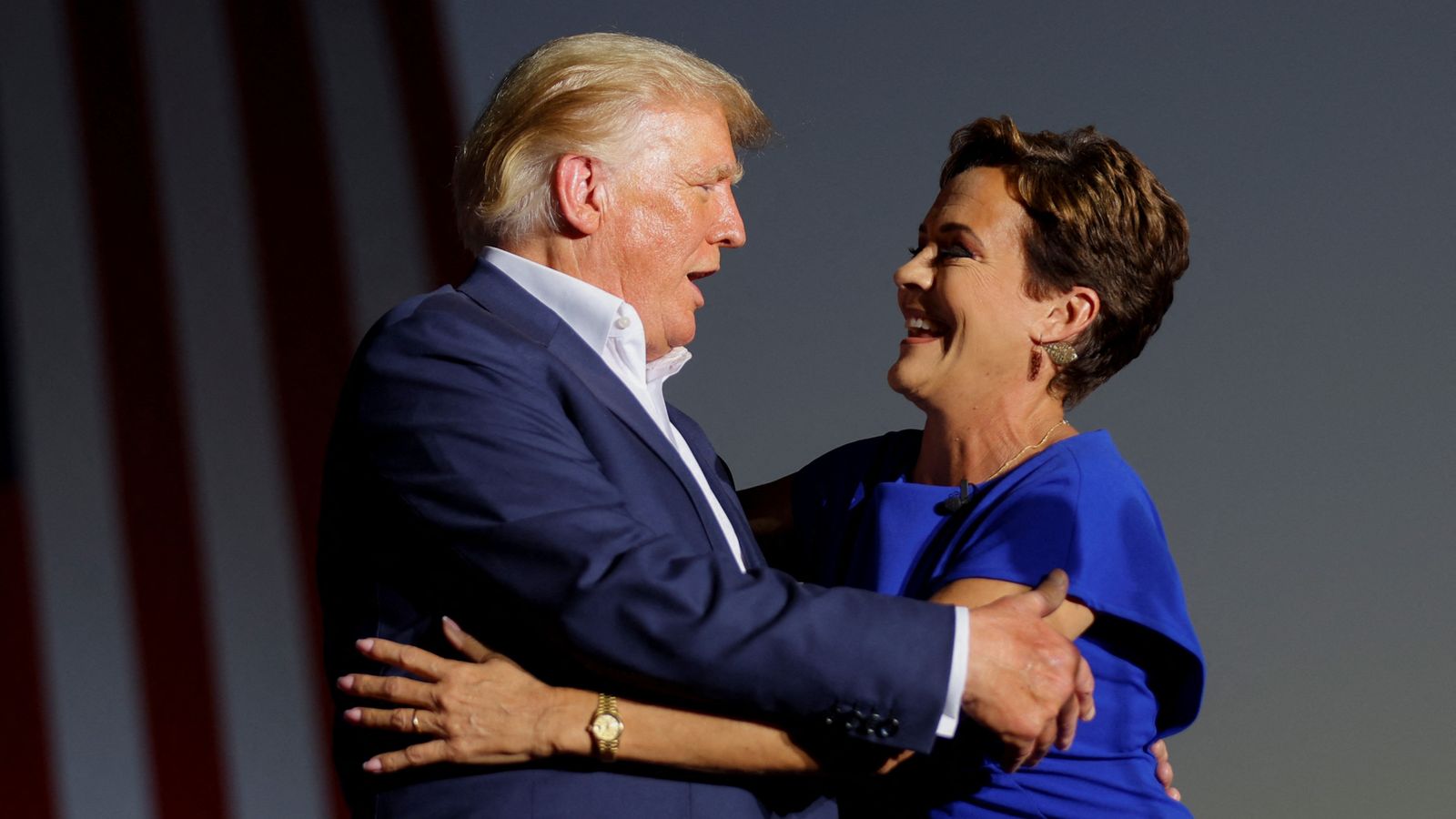US midterm results: Trump-endorsed Republicans fare poorly, but there were wins for election deniers

One of the biggest talking points of this year’s campaign was how the army of Republican candidates backed by Trump would do, how influential the former president still is and whether his seal of approval carries weight with the electorate at large as well as with his base.
Mr Trump officially endorsed 174 of the 430 Republican House candidates, and analysis of results from just over half of counties suggests he didn’t help them very much.
In counties with candidates backed by Trump, the Republican vote share increased by 2.1 percentage points compared to the 2020 presidential election. That’s well short of the 8 percentage point increase for the party in counties without Trump-endorsed Republicans.
The difference was largest in areas defended by the Democrats, but was still clear in districts that were held by Republicans before polling day.
Who’s winning? Follow the latest results live
Trump-backed candidates have fared even worse in Senate races, with the Republican vote share falling. In areas where they were challenging an incumbent Democrat, the decrease was 1.2 percentage points.
But when the Republican challenger to a sitting Democrat wasn’t backed by Trump, the Republican vote share increased by 7 percentage points.
Similar patterns were seen in the races to unseat Democratic Governors and Secretaries-of-State. Here the Republican vote share fell in areas where candidates had a Trump endorsement and rose where they didn’t.
Election deniers
While Trump’s endorsement may not have helped Republican candidates, those who doubted or denied the legitimacy of Joe Biden’s election in 2020 did well.
Of the 430 Republican candidates for the House, 224 had previously either denied or cast doubt on the legitimacy of that election. Those candidates performed relatively well, increasing the Republican vote in their areas by 6.7 percentage points (compared to 4.9 percentage points for other Republican candidates).
But it didn’t seem to help the Republicans gain seats. Election-deniers were relatively successful when defending Republican seats, but didn’t do any better than other Republicans when taking on sitting Democrats.
Nevertheless, many election-deniers won their races. Of the 33 new Republicans in Congress, 21 have cast doubt on the 2020 presidential result. That includes seven of the 12 Republicans who gained House seats from the Democrats.
Two of those 12 are not entirely new to the building they will now call their office. George Santos (NY-3) and Derrick Van Orden (WI-3) were both present outside the Capitol on 6th January last year, attending a pro-Trump election-denial rally which culminated in the violent storming of the US legislature.
For Republican Senate candidates, denying the 2020 presidential election may have done them more harm than good. Their vote share fell by 2.4 percentage points, while candidates who haven’t denied Joe Biden’s legitimacy as president saw an increase of 6.2 percentage points.
This analysis is based on results from just over half of counties, so may not be representative of the final outcome but at least gives us a glimpse of how things are going as we look ahead to the next election in 2024.
The Data and Forensics team is a multi-skilled unit dedicated to providing transparent journalism from Sky News. We gather, analyse and visualise data to tell data-driven stories. We combine traditional reporting skills with advanced analysis of satellite images, social media and other open source information. Through multimedia storytelling we aim to better explain the world while also showing how our journalism is done.
Why data journalism matters to Sky News

